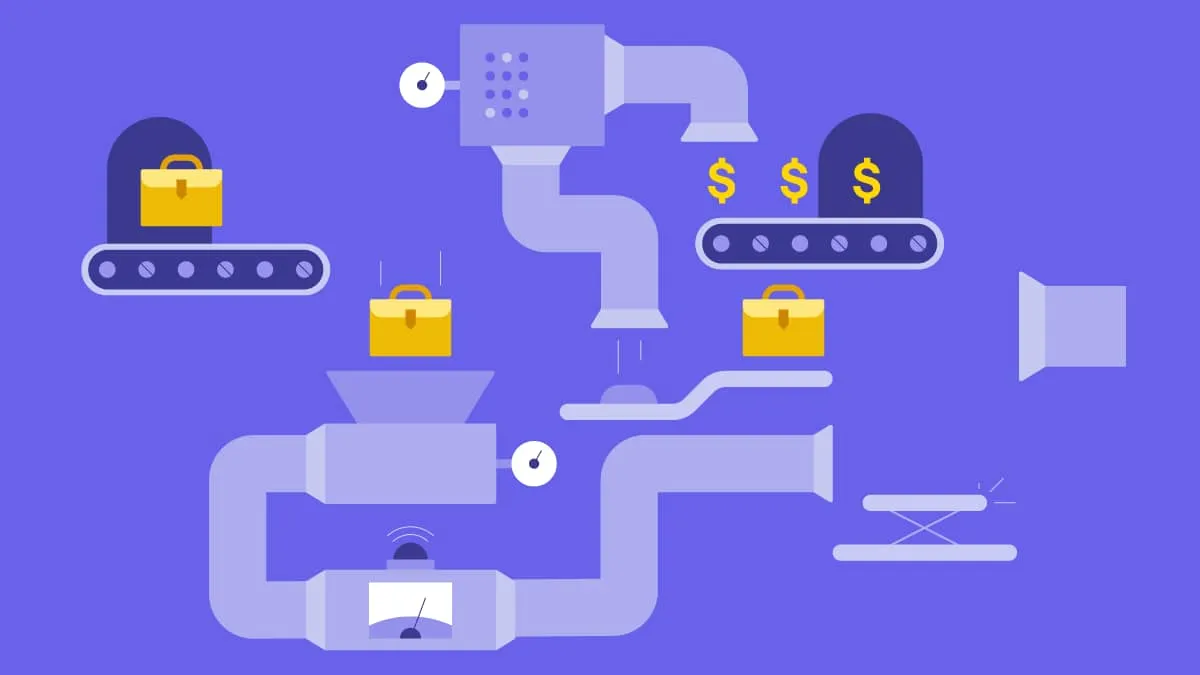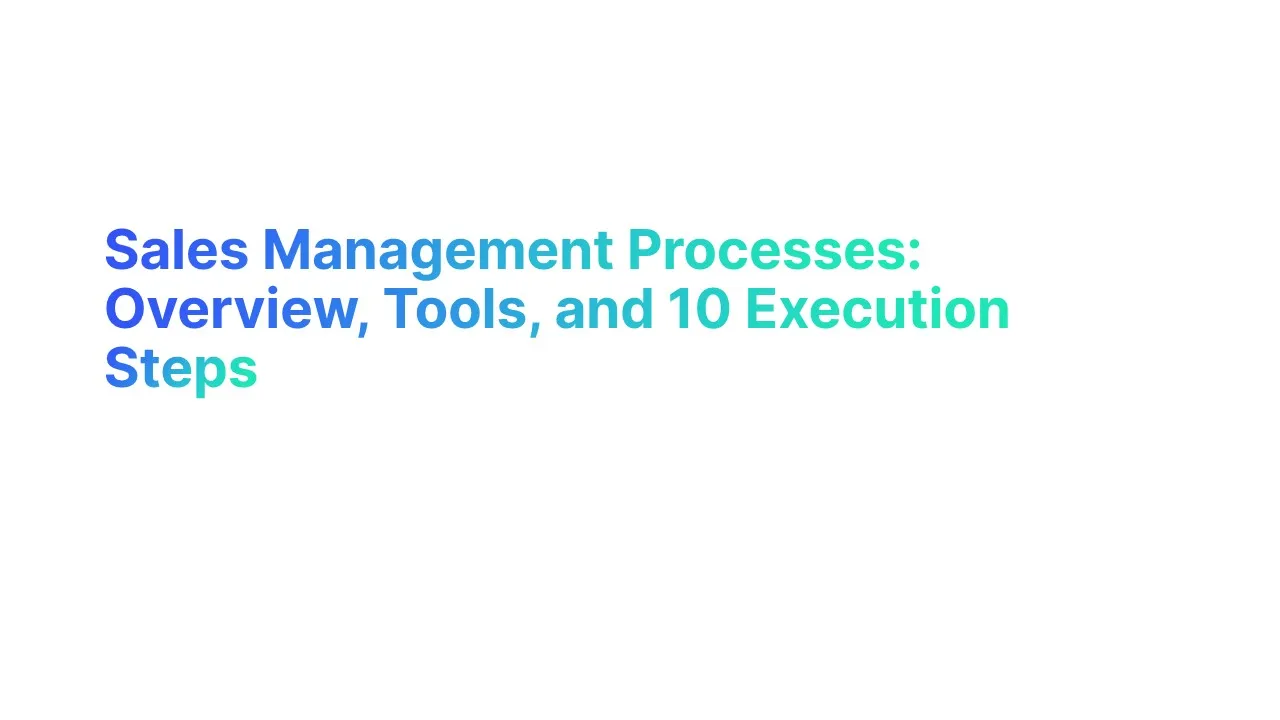What is the Shin Fu Sales Process

The Shin Fu Sales Process is a specialized sales methodology that prioritizes communication and trust between the salesperson and the client.
Unlike traditional approaches, Shin Fu emphasizes understanding the customer's needs through a series of targeted questions and interactions, making it uniquely effective in securing long-term business relationships.
Key Features of the Shin Fu Sales Process:
Client-Centric Approach: At its core, Shin Fu focuses on the client’s needs, desires, and challenges.
- Builds a foundation of trust by prioritizing the client's perspective.
- Facilitates a deeper understanding of the client's specific requirements.
Strategic Questioning: Effective questioning techniques are pivotal in this process.
- Questions are designed to uncover the client’s true needs and how they align with the offered solutions.
- Statistics show that sales conversions can increase by up to 70% when sales teams engage in active listening and tailored questioning.
Objection Handling: Shin Fu provides robust training in objection handling, turning potential deal-breakers into opportunities for reassurance and clarification.
- Sales professionals are trained to address objections with empathy, using them to further understand and dismantle barriers to purchase.
- Research indicates that a well-handled objection can improve customer satisfaction scores by 30%, enhancing likelihood of repeat business.
How the Shin Fu Sales Process Works

The Shin Fu Sales Process operates on a foundation of psychology and tailored communication, making it distinctively effective in engaging clients and closing sales through a more respectful and insightful approach.
This method works by fostering a deep connection between the salesperson and the client, ensuring that the sales dialogue revolves around understanding and solving the client's problems rather than simply pushing a product.
Key Phases of the Shin Fu Sales Process:
1. Building Rapport:
- Initial Contact: The process begins with the salesperson establishing a connection with the client. This is not about small talk; it's about showing genuine interest in the client's business and personal needs.
- Trust Development: Salespeople are trained to create a comfortable, open environment where clients feel safe discussing their needs and challenges.
2. Strategic Questioning:
- Identifying Needs: Through carefully crafted questions, the salesperson digs into the client’s specific challenges and goals. This step is crucial for tailoring the conversation towards the client's actual needs rather than assumed ones.
- Engagement and Listening: Active listening is employed to ensure that the client feels heard. Statistics indicate that clients are 40% more likely to consider buying from a salesperson who understands their needs well.
3. Presenting Solutions:
- Customized Proposals: Based on the information gathered, the salesperson presents solutions that directly address the client’s unique issues. This is where the sales process differentiates from others; solutions are not pre-packaged but are formulated as per the specific discussion with the client.
- Benefit Orientation: Each feature of the proposed solution is linked to a clear benefit, making it evident how it solves the client’s problem or improves their situation.
4. Handling Objections:
- Preparation and Anticipation: The Shin Fu method teaches salespeople to anticipate potential objections based on the conversation and prepare coherent responses.
- Transforming Objections: Instead of dismissing concerns, objections are seen as opportunities to further clarify and align the solutions with the client's needs.
5. Closing the Deal:
- Consent-Based Closing: Closures in the Shin Fu process are soft and based on obtaining the client’s consent. This could be through summarizing the agreement and asking if the client agrees to each term, ensuring there is mutual understanding and agreement.
- Future Engagement: Even after the deal is closed, follow-ups are essential to maintain the relationship, addressing any post-sale issues and laying the groundwork for future business.
6. Continuous Improvement:
- Feedback Loop: Regular feedback from clients and self-assessment tools help salespeople refine their approach and improve their execution of the Shin Fu process.
- Sales Analytics: Performance metrics and conversion data are analyzed to identify strengths and areas for improvement, ensuring that the process evolves with changing market conditions and client feedback.
Strategies to Master ShinFu Sales Process on Sales Calls
Mastering the Shin Fu Sales Process involves adopting a client-centric approach that focuses on understanding and meeting the needs of customers through strategic questioning and empathetic engagement.
Below are strategies to help sales professionals effectively implement and excel in this nuanced sales technique, particularly useful for roles like home improvement contractors and other direct selling environments.
1. Intensive Training in Communication Skills
- Active Listening: Sales professionals should be trained extensively in active listening skills, allowing them to genuinely understand the client’s concerns and needs. This is critical in areas such as selling high-value services or products.
- Empathetic Engagement: Teach how to empathize with clients, showing understanding and concern for their issues, which helps build confidence and bring respect to the conversation.
2. Develop Strategic Questioning Techniques
- Script Development: Create scripts for common scenarios that include open-ended questions to encourage detailed responses from clients. This is part of essential Shin Fu sales training.
- Continuous Learning: Regularly update questioning techniques based on feedback and changing market trends to stay relevant and effective, especially in competitive fields like trade and contractor services.
3. Role-Playing and Real-Time Feedback
- Practice Sessions: Engage in regular role-playing sessions that simulate various sales game scenarios to help refine approaches and handle different client personalities.
- Immediate Feedback: Implement a system where salespeople receive immediate feedback on their performance during training sessions, allowing for quick adjustment and improvement.
4. Understanding and Leveraging Client Psychology
- Client Motivations: Train sales teams to identify and understand the psychological factors that influence clients’ decision-making processes, particularly when dealing with window shoppers who may initially seem uninterested.
- Behavioral Training: Include behavioral training to help salespeople recognize verbal and non-verbal cues that indicate how a client feels about the ongoing discussion.
5. Advanced Objection Handling
- Anticipation of Concerns: Teach salespeople to anticipate potential objections based on the conversation flow and have prepared, empathetic responses that address these concerns effectively.
- Positive Framing: Use positive framing techniques to turn objections into opportunities to further demonstrate the value of the product or service, helping sell more effectively.
6. Customized Sales Pitches
- Tailored Solutions: Ensure that sales pitches are not generic but are customized based on the specific needs and situations discussed with the client. This customization is key in home improvement contractors successfully closing deals.
- Value Propositions: Clearly articulate how specific features of a product or service can solve the client’s problem, linking benefits directly to client needs and their willingness to spend money.
7. Mastering the Soft Close
- Consent-Based Techniques: Focus on soft closing techniques that seek the client’s agreement and comfort with the decision, ensuring they feel it was their choice.
- Trial Closes: Use trial closing techniques throughout the conversation to gauge the client's readiness to buy and adjust the approach accordingly.
8. Continuous Process Improvement
- Feedback Loops: Establish a structured feedback loop with clients to get honest feedback on the sales process and areas of improvement.
- Sales Analytics: Utilize sales data analytics to measure the effectiveness of different aspects of the Shin Fu Sales Process and identify successful strategies and common pitfalls.
9. Regular Updates and Adaptation
- Market Trends: Keep the sales process updated with the latest market trends and consumer behaviors to remain relevant and effective.
- Training Refreshers: Conduct periodic refresher courses to keep the sales team updated on the latest techniques and strategies.
Concluding Thoughts on Shin Fu Process
In conclusion, the Shin Fu Sales Process is a powerful methodology tailored to foster trust and understanding between sales professionals and their clients. By focusing on strategic questioning, empathetic engagement, and customized solutions, this process not only enhances the effectiveness of sales interactions but also strengthens long-term client relationships.
The key to success with the Shin Fu method lies in its thoughtful implementation: from intensive training and continuous improvement to mastering the art of the soft close. For any organization committed to elevating its sales game and integrating the Shin Fu Sales Process, offering a dedicated course can transform ordinary sales encounters into meaningful connections that drive both satisfaction and revenue.





.png)



